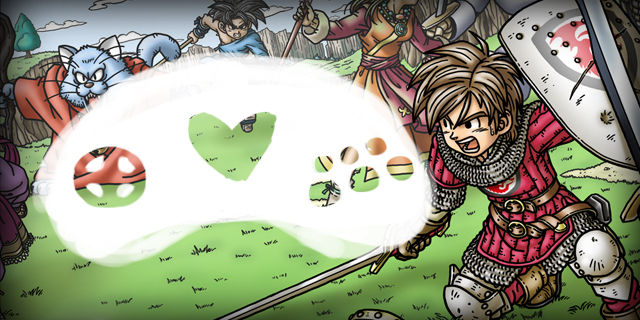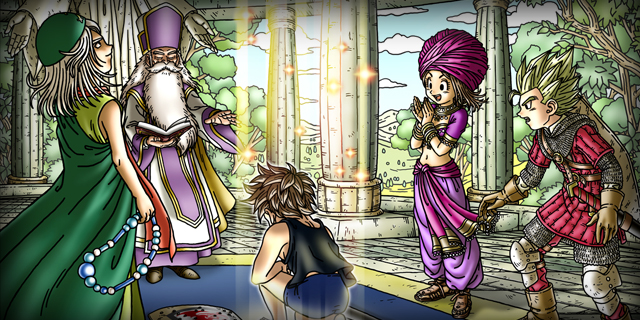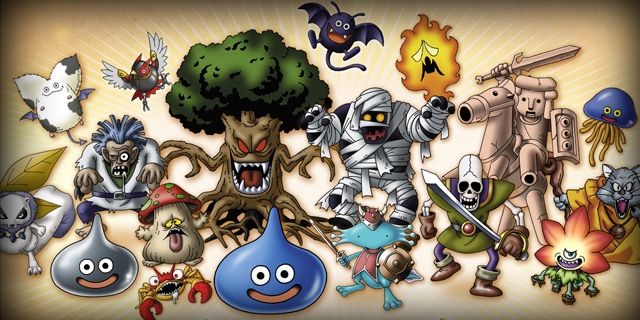
In the My Favorite Game series, get to know us better as staff writers share the game they love most and why.
It’s one thing to casually ask a friend what their favorite game is, and even they struggle to find an answer.
“Ah, jeez.” They may just shut down entirely. “Can I, like, give you a top five?”
You might get a comprehensive list covering the bullet points of their tastes developing over the years. Chances are, you’ll get a list of video games that will change in some way the next time you ask them.
It’s another thing to ask a guy who wants to write about the things for a living. I haven’t just been playing games in a casual or hardcore capacity. In the past few years, my passion for the medium has evolved from mere consumption to critique, scrutiny and analysis. If I don’t truly examine a game, breaking down the whys and hows of whether or not I’m having fun? I’m not doing my job. So when I must pick a single game as a “favorite,” several different angles and qualifiers come to mind. Do I go for what I think the “best” game is, mechanically? Should I consider nostalgia and sentimental value? Should I pick something based on objective value or emotional impact?
I went through each game that came to mind and broke down why I considered them. Which title had what I felt were the most interesting reasons for being on the pedestal I placed it on? Ultimately, I decided to forgo nostalgia, instead focusing on games that had a lasting impact on myself as I am today. The Lucas White of the 2010s. The man of dumb jokes and Twitter arguments.
That game is Dragon Quest IX: Sentinels of the Starry Skies.

Makafushigi Adventure
Honorable Mention: Super Street Fighter IV
This is a game that brought my friends together countless times, since the first version of the game debuted in 2008. It has a huge roster and grounded mechanics, and is almost as exciting to watch as it is to play in the hands of more seasoned players.
There’s something infectiously charming about a game series so wrapped up in its own world. Up to and including Sentinels in the Starry Skies, Dragon Quest games have largely kept to familiar territory ,outside of what you’d expect from the natural evolution of games. When you turn the game on and hear Koichi Sugiyama’s loud, whimsical and earnest opening theme, you know exactly what to expect: a grand (albeit grind-filled) adventure, Akira Toriyama’s irreplaceable art and yet another lighthearted scenario from Yuji Horii that is as silly as it is grounded in raw humanity.
Vocational Prowess
I love job systems more than any other machination in the history of JRPGs. They let me have my cake and eat it too, combining robust character customization with separate, defined character roles instead of a jumbled mess of numbers and skills (materia, for example) that ultimately lead to characters not being unique. Job systems also breathe extra life and replay value to a game, without it feeling like arbitrary padding. If you’re lucky, each job even comes with a cool costume. Dragon Quest IX excels for all these reasons. It has visible armor changes with special sets for each class, a smorgasbord of unique skills and an intuitive system that shies away from the complications of similar systems to do the unthinkable: make grinding fun.

More Than Just a Dragon Quest
Honorable Mention: Final Fantasy IX
Here’s the big nostalgia pick. This was my first experience with a huge, fully-realized game world and long, overarching narrative. It hits all the right notes for me even today, never being afraid to be adventurous and whimsical even in the face of consumers that often mistake grit and angst for superior storytelling.
Yuji Horii is a treasure. His capacity for crafting touching, believable scenarios in unbelievable worlds is uncanny. Sure, the main plot of Dragon Quest IX is simple: you must defend existence from a big evil guy. But the magic lies in the journey. Horii succeeds where many JRPG storytellers fail or simply don’t bother: he makes each town matter. Dragon Quest IX is almost episodic; each portion of the game acts as an almost standalone vignette, a small story sometimes involving a single person, related only to the main storyline in the reward you receive for your troubles.
You don’t just stop in a town for supplies, directions or a trigger for the next main event. You help people. You save lives, relationships and families. The characters you control may be silent, but each town really feels like a small group of human beings living together. They have real, believable problems, ranging from silly trouble-making to heartrending tragedy. You get to experience each one on your way to do the big video game thing, and that’s worth more than all whiny melodrama a party of adventurers could produce elsewhere.



















